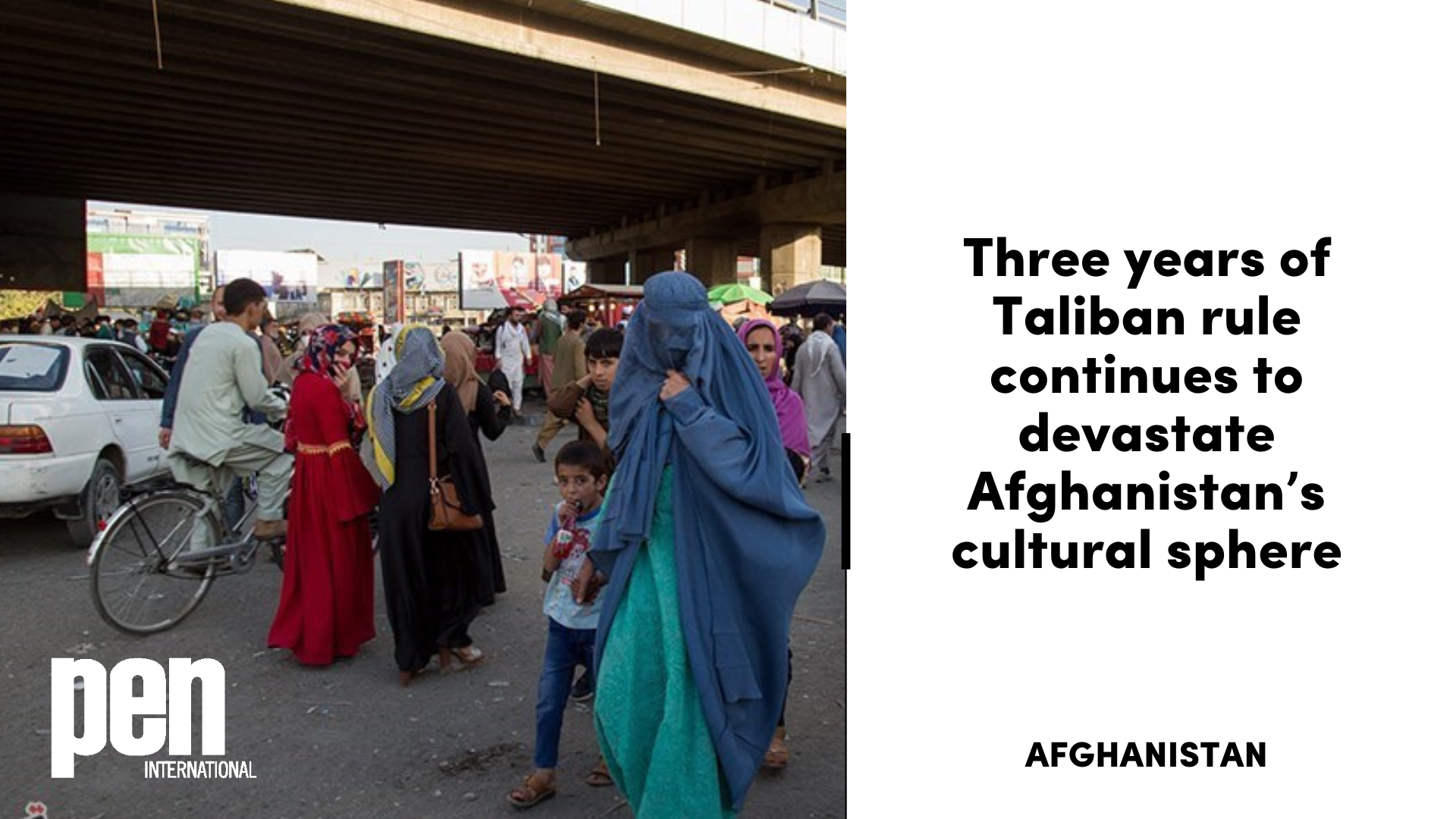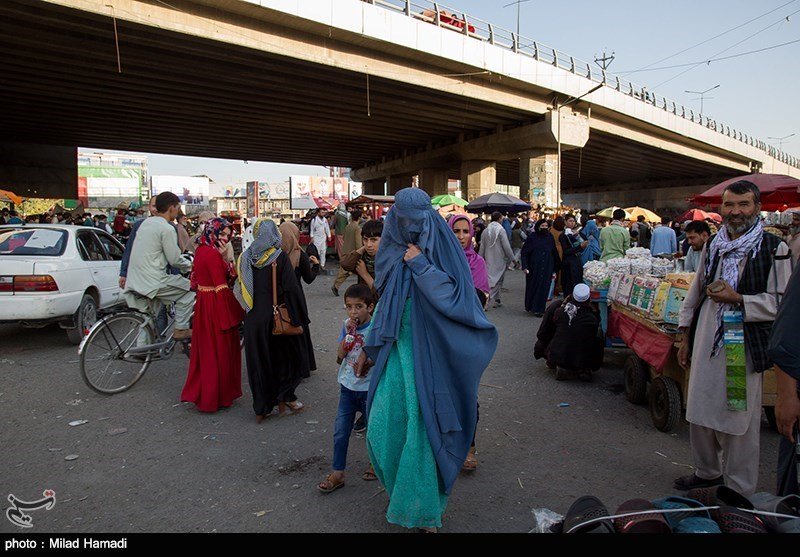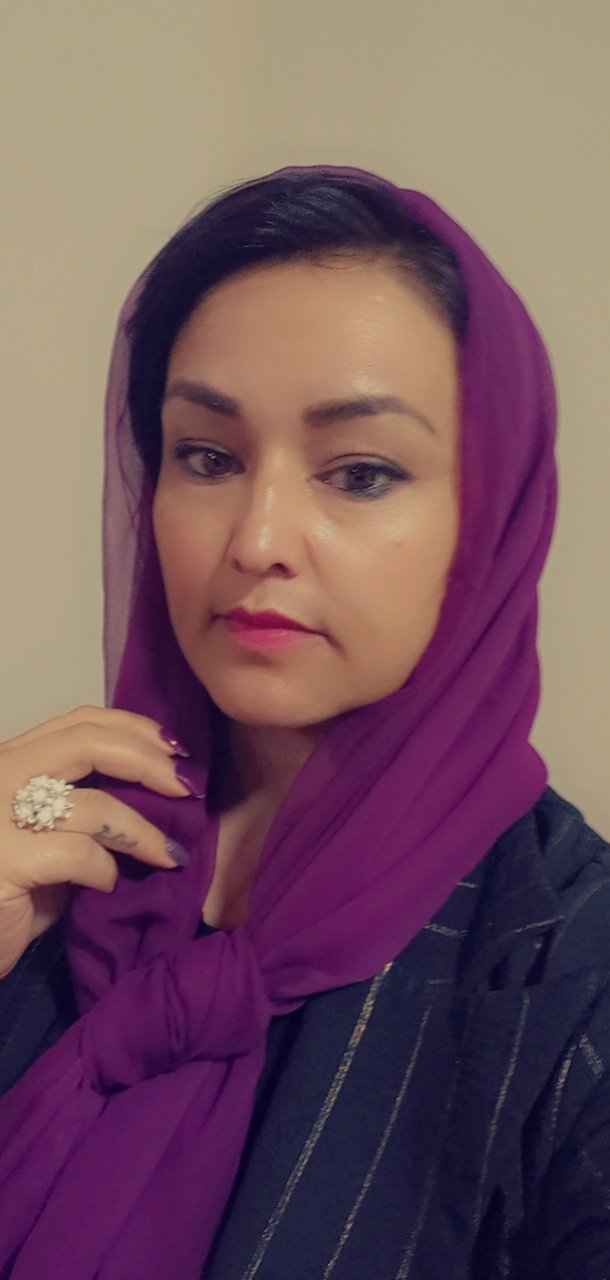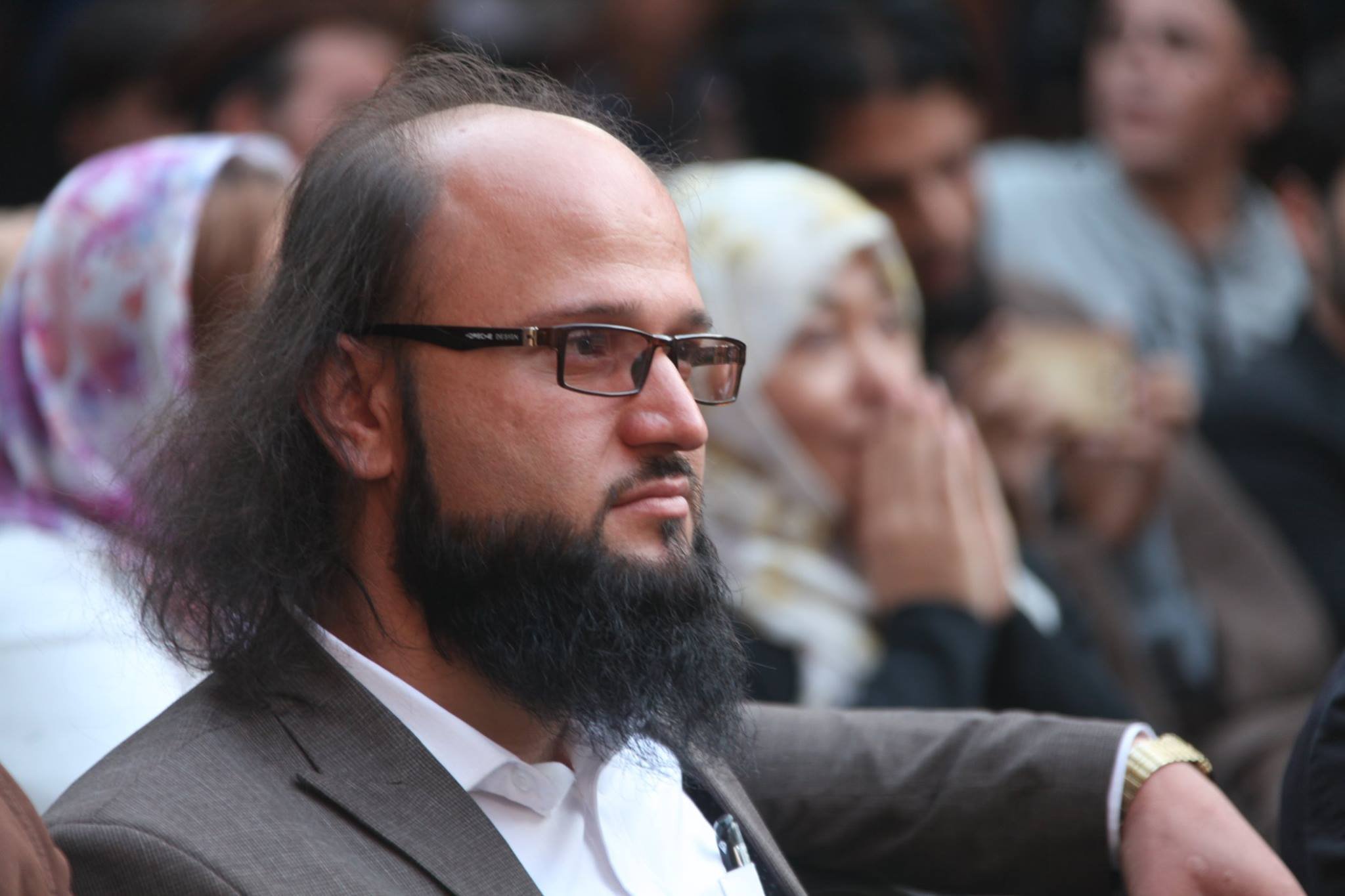Afghanistan: Three years of Taliban rule continues to devastate Afghanistan’s cultural sphere
Photo: Milad Hamadi (CC BY 4.0)
‘As the Taliban celebrates its seizure of Kabul three years ago with a military parade, its abusive rule continues to have a devastating toll on the country, shattering the aspirations of a generation of women and girls. The Taliban’s violent intolerance towards dissent of any kind has resulted in a suffocating climate of self-censorship, silencing Afghanistan’s once-vibrant cultural sphere. We call on the international community to continue to honour its commitment to protect Afghans at risk of persecution for their peaceful expression’, said Ma Thida, Chair of PEN International’s Writers in Prison Committee.
15 August 2024: Three years ago today, the Taliban entered Kabul, marking the militant group’s return to power for the first time since the US-led invasion in 2001. For many writers, journalists, artists, academics and others, the prospect of life under Taliban rule was one of abject terror, with many fearing for their lives due to the Taliban’s demonstrated intolerance of their beliefs, ideas and expression.
This fear was warranted. In the weeks preceding the Taliban’s seizure of the country’s capital, PEN International received numerous reports of targeted attacks on writers, poets with others fleeing Afghanistan’s provincial cities as the Taliban expanded its territorial control. Many travelled to its capital city to stay in the homes of family and friends, hopeful that the relative security it provided would endure despite the Taliban’s rapid gains throughout much of the country.
In the days leading up to the Taliban’s seizure of Kabul, PEN International received harrowing news of the murder of two PEN members. Abdullah Atefi, a poet and historian, was shot outside his home on 4 August. Just two days later, Dawa Khan Menapal was shot by Taliban gunmen while travelling for Friday prayers in Kabul. The day before he died, Menapal had spoken out against Atefi’s murder.
Over the last three years under the Taliban’s abusive rule, many of these fears have been realized. The rights of women and girls have been systematically undermined by the Taliban, who have imposed wide-ranging restrictions impacting all aspects of their lives, resulting in a situation so severe that UN experts have described it as an act of ‘gender apartheid’. Examples of the restrictions on women and girls include the ongoing prohibition of girls over 12 from going to school and women from university, along with further restrictions impacting women’s ability to move, work and participate in public life. In 2023, activist and PEN member Zholia Parsi was arbitrarily detained for several weeks for her peaceful expression against these restrictions.
Afghanistan’s once-vibrant Independent media sector has been decimated, with 40% of Afghanistan’s privately-owned media outlets forced to close within the first four months of the Taliban’s return to power, while remaining media outlets operate under severe restrictions ranging from the prohibition of music to any form critical expression towards the Taliban. According to RSF, over 140 journalists have been arbitrarily arrested and detained since August 2021, with many more living in hiding or forced to flee the country.
The severe and arbitrary nature of ongoing restrictions has created a pervasive climate of self-censorship. Many publishing houses have been forced to close, and PEN International has received reports of writers forced to destroy their book collections and writings out of fear of discovery from the Taliban, with many more now unable to write out of fear of persecution. For those whose writing has already been published, many now live in terror at the prospect of a Taliban official discovering a copy of their book on a library bookshelf.
The dismantling of Afghanistan’s media sector has been compounded by the country’s deepening humanitarian crisis, with over half the country’s population now requiring humanitarian aid to survive this year according to the UN. The resulting situation has left many writers, journalists and academics unable to support themselves through their writing, diminishing the dissemination of knowledge and ideas in ways that will profoundly impact Afghanistan’s social and cultural fabric for generations.
For all too many Afghan writers, journalists and academics who were forced to flee the country, life remains one of abject precarity and cultural isolation. PEN International continues to receive numerous requests for assistance from Afghan writers, poets, journalists and others who left Afghanistan for neighbouring countries including Iran and Pakistan. Many of those who have fled now exist in dire circumstances, unable to support themselves and at heightened risk of exploitation or refoulement due to their vulnerable status.
Over the last three years, PEN International, working in close collaboration with a network of PEN Centres, has facilitated the long-term relocation of over 120 at-risk Afghans, comprising of writers, poets, academics and journalists as part of a multi-year effort. However, our ability to support has been contingent on the commitment of governments to honour previous pledges to protect those at most risk from the Taliban.
Unfortunately, PEN International is no longer in a position to provide further relocation support and the organisation calls on potential countries of safety to renew their stated commitment to support Afghans who remain at grave risk of persecution for their peaceful expression.
For further information please contact Ross Holder, Head of the Asia/ Pacific Region at PEN International, email: [email protected]




